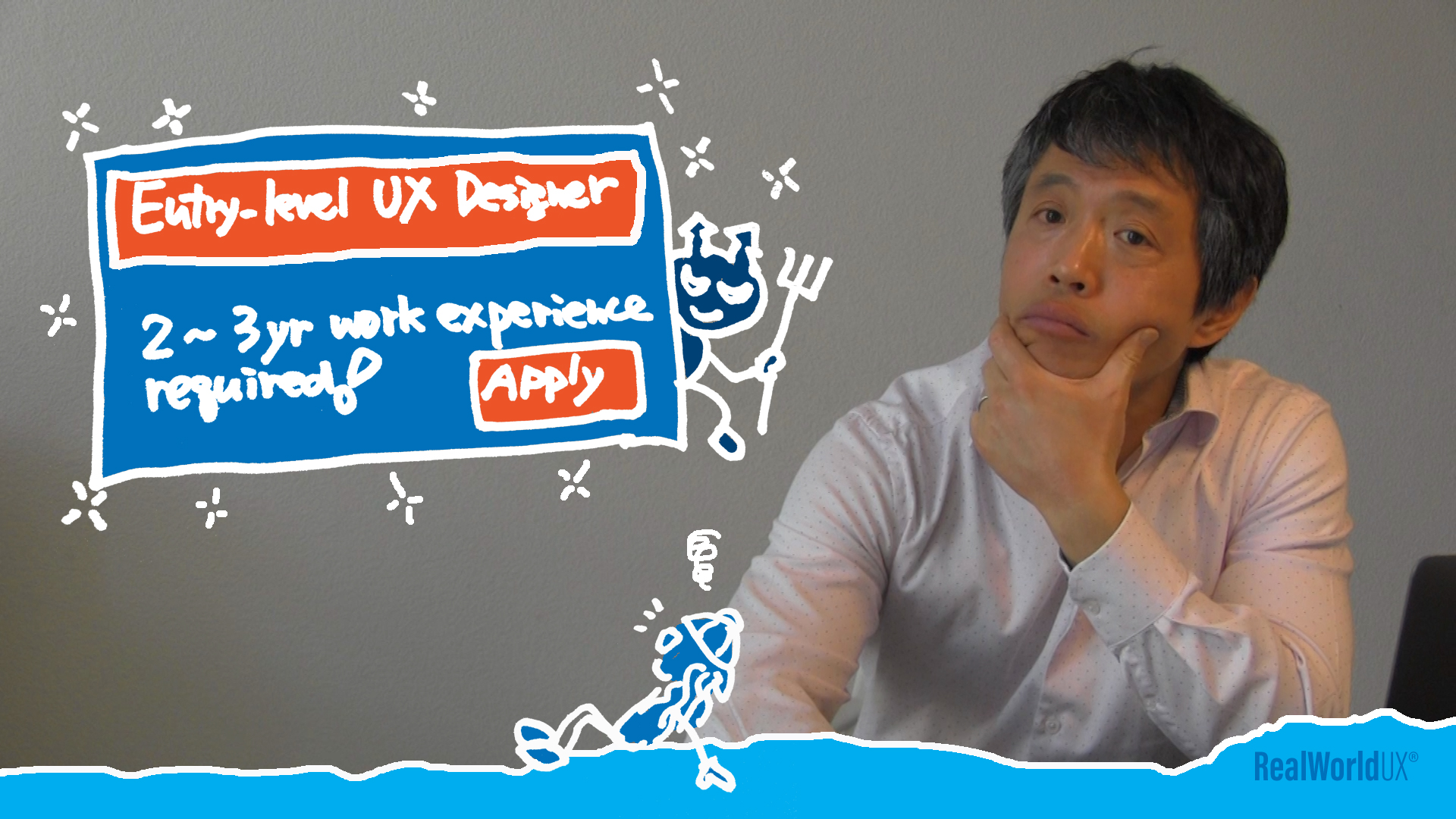Many UX beginners struggle that a lot of entry-level UX positions already require 2-3 year work experience.
How do you overcome applying for entry-level job positions that require 2-3 year of work experience when you just graduated from college, or if you don’t have such work experience?
So the field of UX has been attracting so many people from all the different fields.
As soon as you start applying for a job, you will confront this.
Hiring managers and recruiters ask you:
“What kind of work experience do you have?”
And lot of times, you will hear them telling you that,
“You don’t have enough experience”.
And you wonder, how can I possibly already have work experience when I just graduated from a college?
Hiring managers and recruiters are looking to fill in open positions in their companies with someone who can directly function from day 1. Lot of the time, the hiring side is in a desperate business need to fill in an open position to get their business going. This means that they have no time to hire someone with no experience, because that means they need to train and educate that new person. This is a significant investment, that they want to avoid.
Which is why, hiring managers and recruiters will focus on candidates’ work experiences and portfolios as concrete proofs.
So what do all these mean to you?
This means you need to understand this reality, and plan ahead.
While you are still in college, you should do the followings:
1. Try to do internships as much as possible.
Most colleges offer internship opportunities. This is a great way to get an early exposure to the real world, and get a chance to work on real world projects while you are still in college, so that you can put those projects in your portfolio.
If the internship goes really well, you might even get an offer for a full-time position once you graduate.
2. Try to set your school project in a real world context
Instead of working on pure, imaginary project, try to find a real client such as a local non-profit organization that you can work with for your school project.
This works great because…
- It turns your school project into a real world project, solving a real user’s problem
- The whole process of you finding an organization, making a pitch to them, and working through problems with them will be a great experience for you, which could make a great case study to be put in your portfolio.
3. Continuously work on your own UX projects
If you cannot find an organization to work with as described in #2, you can still work on your own UX projects. Even if you are able to do #2, I would still suggest you work on your own UX projects to continuously build up your experience.
Instead of working on a generic “redesign of existing popular website or app”, try to find a specific problem, and focus on solving that specific problem.
When you work on your own UX project, treat it as if it’s a real project.
Go through a whole cycle of:
- Define a problem
- Research on competitive products that solve similar problems
- Develop concepts
- Test your concepts with users
- Iterate your design based on learnings from the user test
For more details on how to work on your own UX project, check out my other article.
Also, check out my another article on why you need two portfolios.
If you start working on these three from early on when you are still in college, you will be in a much better position once you graduate and are ready to apply for jobs.
Being a UX designer is a journey of continuous learning.
In order to gain experience, you need to keep working on UX projects. That’s the only way, and the best way to learn and grow as a UX designer.
If you can do all these three, and put these in form of a case study, or an in-depth process walkthrough as part of your portfolio, your portfolio becomes a concrete proof that you have experience, and you can deliver concrete results.
The only way to overcome being seen as “not enough experience” is to prove yourself that you can actually deliver by showing them your tangible output in form of a portfolio.
Keep working hard, enjoy the whole process. Good luck!
Check out YouTube version too.


